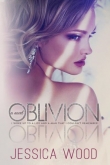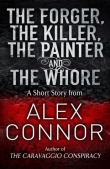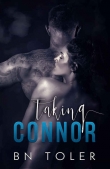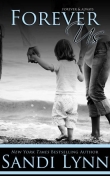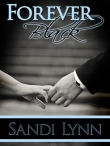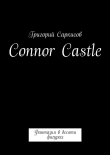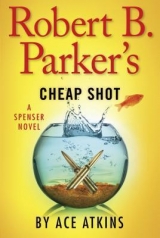
Текст книги "Robert B. Parker's Cheap Shot"
Автор книги: Ace Atkins
Жанр:
Криминальные детективы
сообщить о нарушении
Текущая страница: 7 (всего у книги 17 страниц)
25
Nearing midnight, we caught up with Ray Heywood in his silver Mercedes SUV. He’d stopped off at his brownstone apartment in the South End for a few minutes, and we thought perhaps he’d turned in for the night. But thirty minutes later, he was heading up Mass Ave and turning onto Boylston toward downtown. I drove my Explorer with Z riding shotgun. Z tracked the car from his phone.
“I almost feel like that’s cheating,” I said.
“Is there an honest way to tail someone?”
“Maybe not more honest,” I said. “But sporting.”
I hung back five cars. Ray’s tall Mercedes was easy to spot as it slowed and turned down into the Prudential Center parking garage.
We followed him down into the concrete cavern. I drove past Ray and let Z out before finding a slot two sections over. The garage was silent except for the electric buzzing of fluorescent lamps. Every step, every car door echoed loudly deep beneath Pru Center. Z and I waited until he took the elevator to the street level and followed. Out of the elevators, we rounded the corner and watched Heywood take an escalator up to the shopping plaza. Z and I walked together through the empty mall under the darkened skylights, past the Legal Seafood and the food court, all the kiosks in the center of the mall draped with black cloth. Ray never looked back, heels clacking on the marble floors as he punched the button to the express elevators headed to the fifty-second floor.
“Top of the Hub,” I said.
“What’s that?”
“An overpriced bar with a great view.”
“Maybe he wants a drink?” Z said.
“Or was told to meet someone.”
We took the next elevator up the second-tallest building in the city. The elevator rocketed up and soon slowed. When we stepped out, Ray Heywood was standing with his back to us at the hostess stand. I studied the artwork on the walls and glanced back in time to see Ray turning to the right, toward the long bar and the jazz club. A trio had started up before a huge bay window with a view of the city, the waterfront, Logan, and if you looked hard enough, London Bridge and the Eiffel Tower.
“Nice,” Z said.
“You should see the bathrooms,” I said. “They put ice in the urinals.”
Z seemed properly impressed. We both took a seat at the bar, not within sight of Ray, but Ray had to pass us to leave. I had removed my Spinners cap. Z took off his coat and ordered a Coke. I had a Harpoon on draft in an effort to support local commerce.
“You want to walk back there?” Z said. “Or me?”
“He knows us both.”
I drank some beer and shrugged. I walked back to the jazz club and glanced inside. Ray Heywood was seated near the northern windows. He said something to a waitress and then looked down at his cell phone. The trio played “Skylark.”
I walked back to the barstool.
Z looked up from his Coke.
“‘Skylark,’” I said. “In case you were wondering.”
Z nodded.
“Melancholy.”
“Music of the night,” I said.
We did not speak for a long while, occasionally turning back to the bar and waiting for Ray to return. I had been here recently with Susan and Rachel Wallace. We had heard the food had improved a great deal and had heard right. I’d had the spicy lobster soup, followed by scallops as big as a fist. I thought for a long while about what Susan had ordered but came up with nothing in my memory but a garden salad and a gimlet.
After ten minutes, I got up again and looked for Ray. He was still sitting and looking at his cell phone, pressing some keys. The waitress had brought him a tall drink over ice. The trio had moved on to “’Round Midnight.”
I walked back to the barstool.
“‘’Round Midnight.’”
Z nodded. “Good to know.”
“I like to pass on my cultural knowledge with tough-guy talents.”
I pointed at his empty Coke glass. “As long as you’re driving,” he said.
I had not seen Z take a drink since the beating. He did not seem to mind me having a beer but often seemed uncomfortable at the sight of me with whiskey. I sipped the one beer but laid down a nice tip for the bartender so she would not think we were just mooching off the view. Through the shelves of booze bottles, the nightlights of Boston flickered and pulsed in the blackness. Perspective.
“Kid’s out there somewhere,” Z said.
“Yep.”
“Coming up on three days and nothing.”
“We’ll find him.”
“Now what?” Z said.
“Don’t know.”
“Why don’t we just sit down with Ray?” Z said.
“We could,” I said. “But might scare whoever he’s meeting. If he’s meeting one of the kidnappers.”
Z nodded.
“Should we call Hawk?”
I shook my head. “Break glass only when necessary,” I said.
We listened to the music and sipped our drinks. Just another couple of businessmen out for a good time in ol’ Beantown. Z had only recently been able to pass after cutting off his ponytail. If I had my nose fixed, I might be considered midlevel management material.
At one a.m., Ray walked from the club toward the restroom. I followed him inside and saddled up beside him at the urinal. Over the urinals were historic photos of the city. Mine showed a group of mustached men in front of a horse-drawn fire wagon.
“How about that version of ‘Skylark’?” I said.
Ray turned to me. “Shit.”
“I thought it was pretty good.”
“What the fuck you doing here, Spenser?” he said. “Shit. I’m supposed to meet someone.”
“That’s why I didn’t approach you in the lounge.”
“This is nothing to fuck around with,” he said, stepping away. “Besides, I thought you were through with this.”
“According to super-agent Steve Rosen?”
Ray nodded and stepped over to the sink to wash his hands. The bathrooms were very cramped on the fifty-second floor.
“Who contacted you?” I said.
“Don’t know.”
“But it’s the kidnapper?” I said.
“That’s what they say.”
“When did they call?” I said.
“Didn’t call,” Ray said. “They fucking sent a message to Kinjo’s Facebook page.”
“Now everyone knows?”
“I’m the administrator,” he said. “It was a personal message.”
I had no idea what he was talking about. “What did it say?”
“Man,” Ray said, turning off the sink and reaching for a towel. “I don’t think I should be talking to you.”
“What did they say?”
“If I tell you, they’ll get rid of me next.”
“Did Kinjo want me gone or Rosen?”
Ray was quiet. He was a rotund man, and the two of us filled the small bathroom. His sky-blue silk dress shirt was stained at the armpits.
“Rosen,” Ray said. “Kinjo’s ass is knocked out. They gave him some sleeping pills so he could rest.”
“Then I’m still on the job.”
Ray walked back to the sink and splashed some water on his face. He wiped his eyes and turned back to me. “Doesn’t matter,” he said. “They didn’t show.”
I nodded.
“They told me to go to this fucking bar in Newton and so I go to fucking Newton. I get there and the bartender asks if I’m Ray Heywood. I was like the only one in this shithole and said yes. He hands me the phone, and same weird-ass voice as called Paulie and the Gooch come on and tell me to go to the Top of the Hub and wait. So I wait, and not shit so far.”
“Wait some more,” I said. “Z and I are at the bar.”
Ray ran a hand over his face. He was breathing hard out of his nose as he thought, and finally nodded. “Okay.”
I grabbed his arm, and he looked me in the eye. “If someone sits with you, we’ll see them. If you get a message to go somewhere else, just nod at us on the way out. I have a blue Explorer and will follow you out of the garage.”
Ray grabbed my shoulder. “They said if we told the cops, they’d kill Akira,” he said. “I just told Rosen and he and Jeff Barnes thought I should go alone. You know, find out the terms.”
I nodded. Ray left, and I stayed in the bathroom for a minute before leaving.
I sat back at the bar.
Z did not say anything, just stared at the wide expanse of the Boston night. Lights twinkled and pulsed. Over the shadows and the rain. To a blossom-covered lane.
“Waiting on demands.”
Z nodded. Fifteen minutes later, Ray walked past us and gave a slight nod.
We followed him in the next elevator and out of the Pru Center garage onto Boylston. I called Hawk on the way.
26
An hour later, Z and I sat down across from Ray Heywood and Hawk at the South Street Diner. The restaurant was open twenty-four hours, which made it attractive at two in the morning. It also made it attractive to many drunken kids leaving the bars around Faneuil Hall. There was a lot of noise and boisterous laughing, which was a bit incongruous to our talk of kidnapping and ransom demands. Said demands being left on the windshield of Ray Heywood’s Mercedes while we were all listening to “Skylark” up at the Top of the Hub.
As soon as we both drove out of the parking garage, Ray had called. We drove a fair bit around Chinatown to make sure he was not being followed. Z had recommended South Street because it was near the Harbor Health Club and was a favorite of Henry Cimoli’s. Not that Henry’s taste in food was stellar.
We all drank coffee. Hawk ordered a southwestern omelet with hash browns and a side of bacon. He ate while we spoke. His presence seemed to make Ray nervous. Which was only natural. Hawk made any normal person nervous.
“You’re someone,” Ray said. “I know you.”
“I am someone,” Hawk said. “But you don’t know me.”
“You were an athlete, a ballplayer or something.”
“Before your time.”
“But I know you.”
Hawk shook his head. “You are mistaken, friend.” With that, Ray turned back to me.
“Do you think they saw you?” Ray said.
I shook my head.
“How can you be sure?”
“Because we were careful you didn’t see us,” I said. “And they don’t know us.”
A waitress refilled our cups. Hawk finished the omelet and pushed the plate away, dabbing his lips with his napkin. Z sipped black coffee and listened to the talk.
“Where?” Hawk said.
I looked to Ray. “South Station at six a.m.”
Ray nodded.
“You got the note?” Hawk said.
Z reached into his leather jacket for the note and handed it across. Hawk read it and handed it back.
“Staties gonna be pissed,” Hawk said.
“Yep,” I said. “We should tell Lundquist.”
Heywood looked at both of us as if we needed to be fitted for straitjackets. “Didn’t you read the fucking note?” he said. “No cops or the kid is dead.”
“We read the note,” Hawk said.
Ray closed his mouth.
“I would have thought they’d ask for more money,” I said.
“You don’t think a hundred grand is a lot of money?” Ray said.
Z looked up and spoke. “Not when the victim is worth twenty million.”
“Kinjo’s gonna get the cash.”
“Who’d he tell?” I said.
“His agent.”
“Terrific,” I said. Z still wore his black leather jacket, hands around a thick ceramic coffee mug. Hawk had neatly hung up his trench coat by the booth. His black T-shirt seemed painted onto his body. His forearms corded with muscle and vein. Z studied Ray as he spoke, offering no emotion or reaction. His right hand tapped slightly on the mug.
“What does Kinjo want?” I said.
“He doesn’t want the police to know.”
“We ain’t the police,” Hawk said.
“He doesn’t know,” Ray said, lowering his head and leaning in among the rattling noise to whisper. “This his goddamn kid, man. You don’t mess around with that. I think he just wants to bring the cash, get Akira, and get done with this.”
I nodded.
“But that shit ain’t gonna happen,” Ray said. “Is it?”
I shook my head.
“They gonna try and kill him anyway.”
“It happens,” I said. “But I’d prefer to change the script.”
“How?”
“Three of us can even the odds.”
“And do what?”
“Make sure Akira is returned safe,” I said.
Z drank some coffee. It had started to rain out on South Street and the streetlamps glowed stark and bright white along the pavement. Hawk watched the rain from the booth. He was quiet but completely in tune with every word that was being said. One of the drunk kids dropped a glass of water off a table, crashing to the ground.
Ray recoiled. Hawk didn’t so much as turn his head.
“I can call Kinjo,” Ray said. “But I can’t promise nothing. It’s his kid. His decision.”
“Just how does he figure to leave the house with a hundred grand without the dozens of police camped out at his house knowing?” I said.
“Y’all just haven’t known my brother long enough. But he can do anything he puts his mind to.”
Ray stood up and walked outside under the diner overhang to make the call. I looked to Z. Hawk was still very interested in the rain.
“What will Lundquist do if we’re involved and don’t tell him?” Z said.
“I’ll be number one with a bullet on the staties’ shit list.”
“That bad?” Z said.
“Spenser tops many shit lists ’round here,” Hawk said. “Where he feels at home.”
Outside, Ray’s thick shadow bent over as he spoke into the phone. The streetlights turned the falling rain into sharp gold pellets hitting the asphalt. Gutters collected the runoff and rolled down the dry concrete.
Hawk turned from the window and smiled. “A woman would be mighty grateful to the man who saved her child.”
“Sure,” I said.
“Hmm,” Hawk said.
“I told Susan that you were smitten with Nicole Heywood,” I said. “Was I correct?”
“Smitten too nice a word for what I got,” Hawk said.
27
Kinjo Heywood walked into the Harbor Health Club at four-thirty a.m. and tossed a large workout bag on a weight bench. Hawk had loaded up a curl bar as we waited and repped out with forty-five plates. He had not broken a sweat or showed any labored breathing on his twentieth curl. As he set down the bar, he nodded to Kinjo. Kinjo shook all of our hands. Ray Heywood had gone back to Chestnut Hill.
“I told the police I was headed to the stadium,” Kinjo said.
“What about Barnes?” I said.
“Fuck Barnes.”
“What about Steve Rosen?” I said.
“Rosen got the cash for me,” Kinjo said. “He works for Team Heywood, not the Pats. What we got? Come on, let’s go.”
Z and I had taken a nice leisurely stroll around South Station and came back with diagrams sketched on sheets of yellow legal paper. Kinjo was to show up at the Au Bon Pain in the center of South Station and take a seat. Someone would soon join him, pick up the bag, and leave, presumably by bus, subway, train, taxi, or car. There were many options at South Station, which made it convenient for a drop.
“I’ll cover the platform,” I said. “Z can wait at the escalator down to the T and Silver Line. Hawk is our utility outfielder, covering the taxi stand and exits onto Atlantic.”
“These motherfuckers didn’t say how or when I’d get my kid back,” Kinjo said.
“It’s a one-way conversation,” I said.
“What if this dude tells me Akira isn’t there?” Kinjo said. “That he’ll get me later or some shit.”
“Your son won’t be there,” I said. “They’ll make sure they get the money and then figure out their next move.”
“What would you do?” Kinjo said. “If it were your kid? You want me to be cool about all this. Trust them?”
“Nope.”
I looked to Hawk. Hawk had selected a leather jump rope and used it to stretch out his shoulders. He shot a glance at me before jumping a little rope by the mirrored wall. Hawk was not proficient at being idle unless necessary.
Z sat, elbows on knees, on a bench loaded with the sack of money. I stood with Kinjo. Most of the lights were off in the gym and the air purifier made gentle humming sounds. I had enough coffee at the diner to overcaffeinate a rhino.
“You don’t trust anyone,” I said.
“Then what the hell do you do?” Kinjo said.
“We follow him,” I said. “I wouldn’t want this guy out of my sight until you have Akira in yours.”
Kinjo nodded. “What else?”
“We could put a tracker with the money,” I said. “But I think they’ll check it pretty quickly. The device would get tossed and could definitely piss them off, too. We follow the courier.”
“Where’d you park?” Z said.
“At the Aquarium, like y’all said.”
Z nodded and stood up, going out to the street to check to see if anyone had tailed Kinjo. Hawk finished jumping rope and walked over to where he’d hung up his holster and coat. He slid into the leather, holstering his .44 Magnum, and then fit his leather trench over it. He turned his head slightly, his neck giving an audible pop.
“Won’t be long before Barnes calls the police,” Kinjo said. “Let them know I never made it to the stadium.”
I checked my watch. “Won’t take that long.”
“Can you both promise me something?” Kinjo said.
I nodded. Hawk nodded.
“You snatch up this man and get him to a place where I can whip his ass,” Kinjo said. “All I need is five minutes and a quiet room. I’ll come to terms, I promise.”
“No problem with that, man,” Hawk said. “But Spenser and I have years of experience reasoning with people.”
“You gonna try and talk it out?” Kinjo said.
Hawk shook his head.
“If this person shows up,” I said, “we’ll find out where he’s taking the money and to whom. He’ll talk.”
“How can you be so sure?”
Hawk smiled. I nodded my head modestly.
“Y’all stay so cool,” Kinjo said, shaking his head. “I feel like I’m going to come out of my skin.”
“You just show up with that bag,” I said. “We’ll handle the rest.”
He nodded. And then he got up on shaky legs and walked back to the gym bathroom. A toilet flushed and we heard him throw up.
28
South Station was busy at five minutes until six. Kinjo was already seated at the table by the Au Bon Pain as I perused a copy of Radio My Way by Ron Della Chiesa at Barbara’s Bookstore. I could see Kinjo from where I stood, my elbow resting atop a bookshelf, the brim of my ball cap low in my eyes. In the opposite direction, through the mire of travelers and commuters, Z lingered by the escalators down into the T station. If we had wanted to detain the courier, the number of MTBA cops milling about would have made the task difficult.
The loudspeakers announced train departures from various tracks. The big train board clicked and whirred with the latest updates. Early gray light flooded high windows as the station pulsed with brisk energy. I had just got to a profile on Ruby Braff when I saw a thick-necked guy with bleached-blond hair step up to Kinjo’s table and lean in to speak.
There wasn’t any reason to think this was our guy. Our guy had a knack for not showing. And this could be one of Kinjo’s many fans. Working a kidnapping exchange was more difficult with a guy who’s been on the cover of Sports Illustrated and ESPN magazine. But the guy lingered at the table, and Kinjo’s body language indicated something other than a casual chat with a fan. His body was tense, leaning into the table. The bleached blond snatched the bag and walked toward the open-air bookstore.
Kinjo stood, walking in a daze into the crowd, lifting his chin at the man but not pointing and calling attention as we had discussed.
The man was tall, maybe six-three, broad-shouldered, and wearing an old-fashioned buffalo-check mackinaw with blue jeans and work boots. I got a good look at him as he passed me. Early thirties, chiseled face, thin lips, pale blue eyes. The hair was a color not found in nature. He had the workout bag tossed over his shoulder and wore a smug grin as he strutted through the crowd. I called Hawk on my cell.
The man headed toward a chocolate shop and a bank of ATMs. Z picked him up at the escalator. I told Hawk he was headed to the front doors that met at the corner of Atlantic and Summer.
I increased my pace, passing the escalator and the ATMs and catching Z as the guy crossed over Summer, dodging traffic. Horns blared and cars swerved around him as he made his way to the Federal Reserve Plaza. He began to jog through the open plaza as Hawk braked in front of us at the curb.
I jumped in. Z ran back to his car parked at the station.
Hawk’s car was not familiar to me.
“Trading up?” I said.
“Yeah,” Hawk said. “Every black man wants a ten-year-old Olds with bad brakes.”
“Borrowed?”
“Something like that.”
Hawk zipped down Atlantic and slowed as we passed the guy jogging toward Congress. Hawk pulled to the curb, motor idling, until we saw him run across Congress to a burgundy SUV and jump in. We accelerated from the curb past the Tea Party museum and north along the waterfront.
I called Kinjo and told him to head home. He tried to argue the point, but I’d already hung up.
Atlantic became Commercial, and soon we were in the narrow brick buildings of the North End. They’d spotted us. The SUV took a very hard left, squealing tires, onto Hanover as Hawk hit the accelerator.
“No use in pussyfooting,” Hawk said.
“Nope.”
“They tryin’ to get over the bridge,” Hawk said.
“Makes sense.”
“Tell Z to wait there.”
I called Z and told him to go ahead and drive over to Charlestown.
“Should’ve figured them for Charlestown,” Hawk said.
“Or Roxbury or Dorchester or Southie,” I said. “We mustn’t generalize a hood’s home turf.”
“Charlestown got more criminals per capita.”
“Per capita?” I said.
“I heard it on the television once,” he said. “Don’t know what it means.”
We raced down Hanover toward the statue of Paul Revere. The burgundy SUV squealed right up onto Charter Street. We followed.
“Yep,” Hawk said.
“You sure?”
“Mmm-hmm.”
“Then back off,” I said. “Let Z take it.”
“You trust him?” Hawk said.
“He was trained by us,” I said.
Hawk took his foot off the accelerator. We passed the crooked headstones of Copps Hill burying ground where Charter came into the curve at Commercial. At the corner of Prince, we waited and watched the SUV run through a red light and race onto the Charlestown Bridge.
I called Z again.
“Good to have three of us,” Hawk said.
“Knew the kid would come in handy.”
“Especially now that you pissed off Vinnie,” Hawk said.
“That was inevitable.”
“Inevitable that he’s gonna take over Gino Fish’s territory and we all be screwed.”
“You think?” I said.
Hawk nodded. We idled at the stoplight. A car behind us honked its horn. We turned left onto Commercial and took our time driving over the river into Charlestown.
“You call Vinnie about this?” I said.
“’Cause you can’t?”
I nodded.
“He got his own troubles,” Hawk said. “New crew moving into Eastie on account of that casino being built.”
“Shocking,” I said.
“Mmm-hmm.”
We made it over the bridge and drove slowly along the old Navy Yard where the Constitution lay anchored. Actually, it wasn’t anchored. The proper term was berthed. Or maybe it was moored.
Hawk parked along a row of old brick buildings once in official use by the shipyards. Some of them had been turned into luxury condos and restaurants. Others lay dormant. The street was empty. It had started to rain again.
Hawk leaned back into his seat. We sat there maybe ten minutes when my phone rang.
“Charlestown,” Z said. “Ludlow and Mead. I parked next to the basketball court. There’s two of them. Just went into a triple-decker.”
Hawk started the borrowed car and headed out of the Navy Yard.

